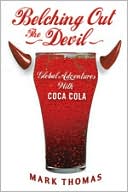
The Coca-Cola Case
By Maria Popova
What Colombian laborers have to do with American foreign policy and the history of soda.
Labor rights are among the most pressing human rights issues in industrialized nations. But what makes the subject most devastating is how remote it feels to most of us yet how deeply infused our everyday lives are with its enablers, from the inhuman factory conditions in the Chinese factories that churn out our favorite shoes to the impossibly low wages of the Indian farmers who grow our afternoon tea. The Coca-Cola Case is an unsettling feature-length documentary by directors German Gutierrez and Carmen Garcia exploring the subject through the lens of America’s favorite soft drink, investigating the allegations that Coke orchestrated the kidnapping, torture and murder of union leaders trying to improve working conditions in Colombia, Guatemala and Turkey.
After months of investigation into Coca-Cola, all evidence shows that the Coca-Cola system is ripe with immorality, corruption and complicity in gross human rights violations, including murder and torture.”
Read full review with video inserts…
Phi Beta Iota: Home and host country issues with multinational corporations were deeply studied in the 1970's, and then the universities were commercialized, distracted, bought off, you name it, they did everything except think holistically. The fragmentation of knowledge is the equivalent of mass human insanity. Coca Cola is representative of the broader issues, but like Nestle and others that sell “liquid,” it is particularly evil with respect to draining public water aquifers without regard to the “true cost” of that untaxed and unregulated behavior.



